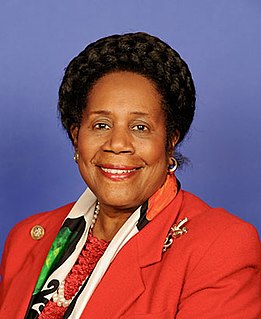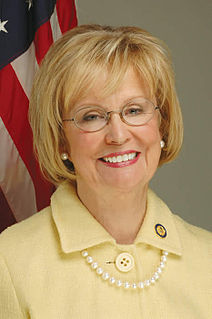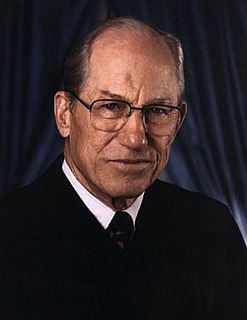A Quote by Sheila Jackson Lee
Maybe I should offer a good thanks to the distinguished members of the majority, the Republicans, my chairman and others, for giving us an opportunity to have a deliberative constitutional discussion that reinforces the sanctity of this nation and how well it is that we have lasted some 400 years operating under a constitution that clearly defines what is constitutional and what is not.
Related Quotes
there ought always to be a constitutional method of giving efficacy to constitutional provisions. What for instance would avail restrictions on the authority of the state legislatures, without some constitutional mode of enforcing the observance of them? . . . This power must either be a direct negative on the state laws, or an authority in the federal courts, to over-rule such as might be in manifest contravention of the articles of union.
Of course, such judicial misconstruction theoretically can be cured by constitutional amendment. But the period of gestation of a constitutional amendment, or of any law reform, is reckoned in decades usually; in years, at least. And, after all, as the Court itself asserted in overruling the minimum-wage cases, it may not be the Constitution that was at fault.
Communism is not a political party nor a political plan under the Constitution; it is a system of government that is the opposite of our Constitutional government, and it would be necessary to destroy our government before Communism could be set up in the United States....[Communism] even reaches its hand into the sanctity of the family circle itself, disrupting the normal relationship of parent and child, all in a manner unknown and unsanctioned under the Constitutional guarantees under which we in America live.
[James] Madison pointed out in the discussion of the constitutional debates - the constitutional convention - that democracy would be a danger. He used England of course as the model and said suppose that in England everyone had the free right to vote; the poor, the propertyless - who are the great majority - would use their voting power to take away the rights of property owners to carry out what we would call land reform.
The public welfare demands that constitutional cases must be decided according to the terms of the Constitution itself, and not according to judges views of fairness, reasonableness, or justice. I have no fear of constitutional amendments properly adopted, but I do fear the rewriting of the Constitution by judges under the guise of interpretation.
[A] re-elected McConnell, with a Republican majority, would, he says, emulate his model of majority leadership - the 16 years under a Democrat, Montana'??s Mike Mansfield. He, like McConnell, had a low emotional metabolism but a subtle sense of the Senate's singular role in the nation's constitutional equilibrium.
The Court is most vulnerable and comes nearest to illegitimacy when it deals with judge-made constitutional law having little or no cognizable roots in the language or design of the Constitution.... There should be, therefore, great resistance to ... redefining the category of rights deemed to be fundamental. Otherwise, the Judiciary necessarily takes to itself further authority to govern the country without express constitutional authority.
































